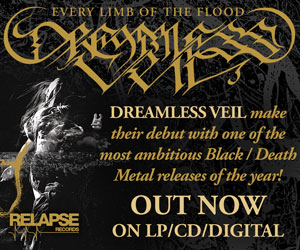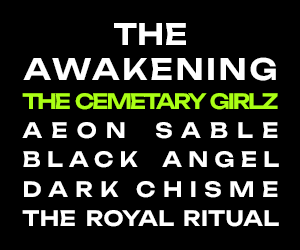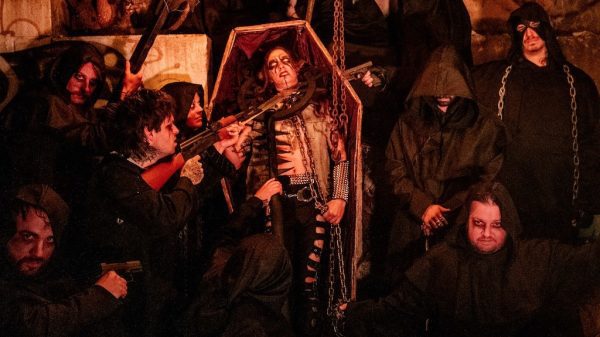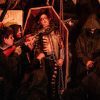Plebeian Grandstand recently came through Detroit on their second-ever U.S. tour earlier this month in support of their latest album, False Highs, True Lows. You can take a gander at my review of it here. I caught up with the band outside of The Sanctuary, one of the very few DIY venues in the city. We covered a lot of ground in twenty minutes, including the creation of the new album, the differences between touring Europe and the United States, and their experiences of playing in Russia.
‘False Highs, True Lows’ has been out for about three months now. How has the response been?
Ivo Kaltchev (drums): So far, it’s been more than good, I think. We’ve had dozens of good reviews all over the world. We’re very happy about that, because Lowgazers had quite a few good reviews, but the reviews for the new album came even quicker. So it’s a very good sign for us and we’ve very happy about that.
For me, the new album is a leap forward. It’s much more direct, the songwriting is a lot tighter. Going into writing this album, what improvements did you want to make?
Simon Chaubard (guitar): I just let myself write. The main difference between Lowgazers and False Highs, True Lows is that Ivo joined the band during the writing of Lowgazers. The record was, like, 70 percent written. With False Highs, True Lows, we wrote together. Ivo wrote some songs, too.
Adrien Broue (vocals): We spent more time in the studio than we did for Lowgazers, especially on voice.
Ivo: Yeah, we had more time in the studio, experimenting with all the weird vocal shit. On Lowgazers, we managed our time badly for the vocals. We ended up doing them in a rush. It ended up great, I think, but we didn’t have that much time to select things. You can tell on the new record that the vocals sound more crazy. It reflects the fact that we had more time to do them.
So, Ivo joined a little more than halfway through the writing of ‘Lowgazers,’ and you also got a new bass player. So, is this the first album that’s written completely with this lineup?
Ivo: Yeah, Olivier joined the band before our previous U.S. tour, just after the release of Lowgazers. It’s almost two years for him as a member.
How did their joining the band impact Plebeian Grandstand?
Simon: They impacted with their personality and vision.
Olivier Lolmede (bass): Ivo and I are more black metal fans than the previous guys, so maybe that’s why there is more black metal stuff than the last record.
Ivo: The previous drummer was much more of a chaotic, hardcore-ish approach. A very super hard hitter, like The Chariot, a metallic hardcore feeling. Whereas I wanted to play more blast beats. That’s what I told Simon and he was okay with that, and it turned out that it suited the songs for Lowgazers pretty well. It was a new a direction.
Simon: Before Ivo joined, we already started to turn towards a black metal, cold atmosphere, and once he joined, it was a U-turn. We just embraced it.
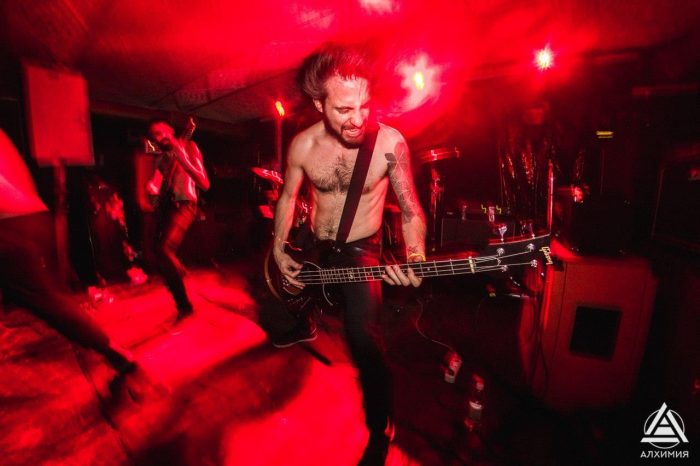
Live in Moscow april 2016. Photo credit : Alchemy Magazine — with Olivier Lolmède.
You guys are on Throatruiner Records over in France, but the new record is being distributed by Deathwish in the states. How did that come about?
Simon: Matthias from Throatruiner has connections with Deathwish. His whole catalog is distributed by them.
Ivo: I don’t think it’s like, a special feature for us, it’s more like all of Throatruiner. But it’s a very big deal for us, we’re very happy about it. It’s a big thing.
It’s gotta pave the way to you guys having more of a presence stateside. It’s cool that your fans in the states are going to have that option from here on out. But going back over to your side of the pond, you guys recently played in Poland, Belarus and Russia, correct? Was that your first time there?
Simon: No. We’d already done a Russian tour in 2011. It was a really big tour, like nine shows. We went to the border of the far east, but this time we just played Moscow and St. Petersburg. Touring itself is not easy. This time it was cool because we took trains, but the previous tour we were in the van and it was super hard conditions. Huge roads, driving all night, sleeping in a sitting position. It was awful.
Adrien: We had some issues with Nazis.
Ivo: I wasn’t in the band at this time, so when the guys told me about this tour, I was not really afraid, but kind of anticipating it, like, it’s gonna be rough. It was a very short tour this time, so it was very easy. Plus, we did two shows with a Russian band that really took care of the aspects that could have been sketchy or difficult for us, so we felt almost protected, you know? Plus, we toured by train, so there weren’t any rotten cops who…how do you say…?
Adrien: Ask you for money…
Simon: Corruption.
Ivo: Yeah, corruption. Corrupted cops are very common in Russia. This time we didn’t have to deal with that.
Simon: On the other hand, the audience is crazy. Russian people are fucking mad.
Adrien: But in a good way!
Simon: In a good way, yeah. That’s the craziest audience we’ve had.
Ivo: St. Petersburg, especially. People went apeshit. It was really great.
Simon: We had the feeling that we were a big band.
Ivo: Yeah, signing autographs and shit.
Simon: People don’t really move at our shows, so for us it’s not really common to have mosh pits and human pyramids.
Ivo: We toured in India two years and it was a bit of the same thing. We’re a small band, but the conditions made us feel like a big band, like rock stars, almost. Which is kinda funny and ridiculous.
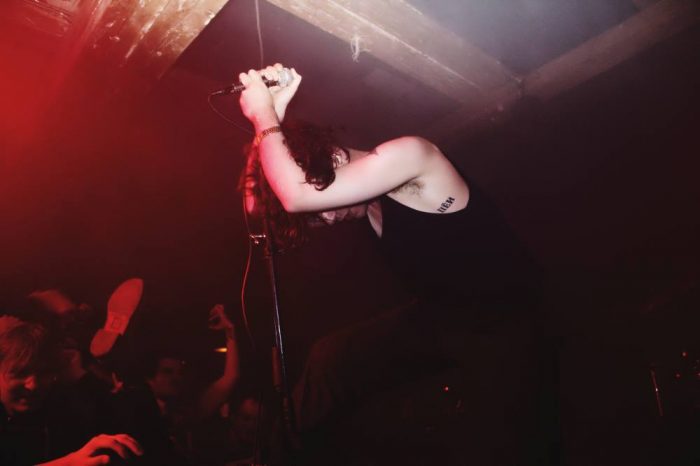
Live in St Petersburg april 2016. Photo credit : Olga Komlach
You guys do most of your touring in Europe. How does it compare to touring in the states?
Ivo: First of all, the gas is way cheaper here. Like, twice as cheap. The rentals are a bit cheaper. This time, we’re on the east coast, so it doesn’t apply as much, but last time, when we toured here two years ago, it was a full U.S. tour. We spent a lot of time on the west coast where there are no tolls. No tolls plus cheap gas is very good, you can do ten hour drives and not lose money.
Any negatives? Don’t hold back, you can fire away if you want to.
Olivier: You have to find a place to sleep. That doesn’t happen in Europe.
Simon: In the U.S., you have to think about money a lot. You have to pay your own food, your own hotel sometimes because you don’t have a place to crash. It’s a bit different, because in Europe, catering and a place to sleep are always in the contract. But the people here are very nice and passionate. We’ve met a lot of people who dig underground music and have good taste. They’re good listeners. We speak to people who hear the songs and hear the details, it’s really nice.
Ivo: Sometimes, in some European countries, or in Russia, for example, you can play in front of people who are there just because they heard there is a rock or metal show, like, you can play in front of Metallica fans. It’s not the same audience. Here in the U.S., you are spoiled with lots of good bands touring. People are of a very wide and broad and specific culture here, so they know your influences, they know what you’re about.
Olivier: They get the message.
Ivo: Yeah, they get the message. We meet lots of knowledgeable people here about music, it’s impressive.
Getting back to those shows in Belarus and Russia, they marked the first time that you guys played the new songs live. How did it go? How did the new songs work outside of the practice space?
Simon: To be really honest, I think the Russian audience are more into our previous record, How Hate is Hard to Define. The reaction was good, but they were expecting those songs, and we just played new songs. But it went fine.
Ivo: As far as the new songs being played live, we had a few adjustments from the first setlist. It was too harsh.
Adrien: It’s more dynamic of a set.
Ivo: Sometimes when you play your fastest, most challenging stuff right off the bat, people get lost.
I’ve listened to the new album a bunch of times, and what I’ve gathered from it is that it’s sequenced really well, it just ebbs and flows. You guys don’t allow a whole lot of breathing room, but just enough. You are a very demanding listen, but you don’t waste any time. The songs are very concise and compact, and you know just when to pull the riff out and change up and drop the tempo down and create a little atmosphere.
Olivier: That’s something we worked on with the new album. I told them that on Lowgazers, which I love, I think there are a few problems with dynamics. We kept the violent and harsh stuff, but we worked with more dynamics.
Ivo: I think for the album it was an essential thing to do. But, you’ll see us live, and we only like to play violent songs.
(This brought a howl of laughter, denials and insults from his bandmates.)
Ivo: I speak of myself in the third person, right? We only like to play violent songs. Fuck you guys.
[youtube id=”-3VuQehFnWI”]
We’ll wrap it up here, but what is next in store for you guys in the immediate future?
Simon: We’re going to tour again next year. We don’t have precise plans, but we want to tour Japan. Between Lowgazers and the new album, it was only two years. We wanted to tour the U.S. this summer, so we were in a rush. Maybe for the next album, we’ll take more time, but I’m already excited to write new songs.
Plebeian Grandstand just wrapped up their tour with Pyrrhon, and are home safe in France. You can grab a copy of False Highs, True Lows from Throatruiner Records or Deathwish, Inc. Records.


